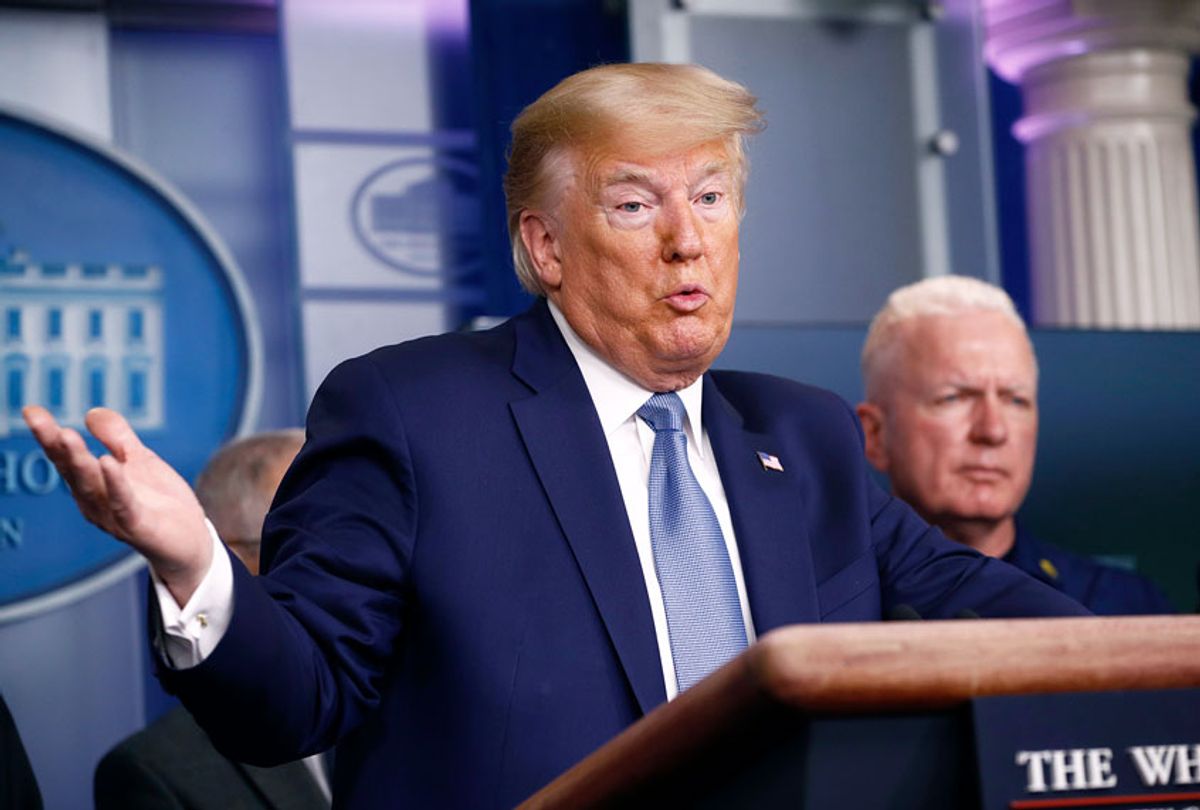The U.S. could have prevented tens of thousands of deaths by imposing social distancing measures between one and two weeks earlier, according to a study by researchers at Columbia University.
The analysis estimated that 54,000 fewer people would have died by the beginning of May had social distancing restrictions been imposed on March 1 — two weeks before most Americans stopped leaving their homes. The delays resulted in 83% more deaths.
The study also found that about 36,000 deaths could have been prevented if the restrictions were put in place only one week earlier.
"It's a big, big difference," lead researcher Jeffrey Shaman, an epidemiologist at Columbia, told The New York Times. "That small moment in time — catching it in that growth phase — is incredibly critical in reducing the number of deaths."
The new findings highlight the damage caused by attempts to downplay the severity of the virus by politicians like President Donald Trump, who claimed March 9 on Twitter that there were only "546 confirmed cases" and declared that "nothing is shut down" and "life & the economy go on." Researchers estimated that tens of thousands of people had already been infected in the U.S. at that point.
But it was not only Trump. As leaders in California and Washington state imposed strict restrictions early and kept the virus contained, New York Gov. Andrew Cuomo and New York Mayor Bill de Blasio ignored advice from top health officials and delayed strict restrictions. In de Blasio's case, the mayor even urged people to go out to bars and restaurants when the city was already deep into its outbreak, according to recent investigative reports by The New Yorker and ProPublica.
De Blasio did not close the city's schools until March 15, nearly one week after New York began to lead the country in positive cases. The president did not recommend avoiding travel and large groups until March 16. Cuomo's stay-at-home order did not take effect until March 22.
The analysis "makes a compelling case that even slightly earlier action in New York could have been game-changing," Dr. Lauren Ancel Meyers, an epidemiologist at the University of Texas at Austin, told The Times. "This implies that if interventions had occurred two weeks earlier, many COVID-19 deaths and cases would have been prevented by early May not just in New York City but throughout the U.S."
Social distancing has been highly effective in containing the spread, according to a recent study published in the journal Health Affairs.
"Adoption of government-imposed social distancing measures reduced the daily growth rate by 5.4 percentage points after 1–5 days, 6.8 after 6–10 days, 8.2 after 11–15 days and 9.1 after 16–20 days," the study, which was conducted by researchers from the Georgia University, the University of Kentucky and the University of Louisville, found. "Holding the amount of voluntary social distancing constant, these results imply 10 times greater spread by April 27 without [shelter-in-place orders] (10 million cases) and more than 35 times greater spread without" bans on large gatherings, school closings, stay-at-home orders and the shuttering of service and entertainment businesses.
Despite the late response, the U.S. prevented an estimated 35 million additional cases as a result of the restrictions, according to the findings.
The stark findings came as all 50 states move to reopen after weeks of lockdowns, drawing concern from experts. Trump rejected them, insisting Thursday that "I was way early."
"Columbia is an institution that's very liberal," he claimed. "I think it's just a political hit job if you want to know the truth."

Shares